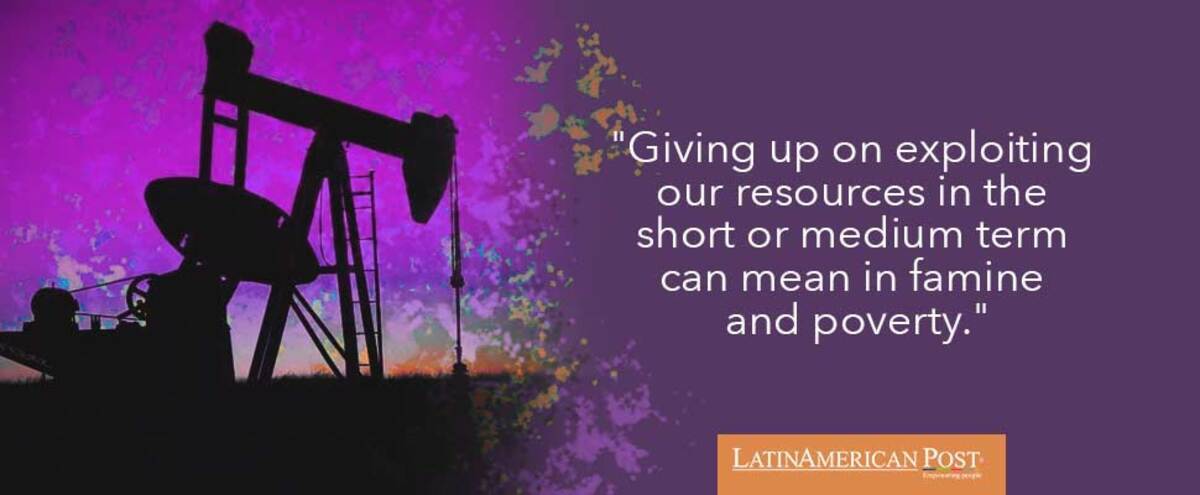Opinion: Latin America Does Not Have to Give Up Exploiting Its Resources
In the region, environmental sectors are calling for a change from extractivist policies to greater use of renewable energy, but Latin America is not the one that should bear the greatest burden.

Photo: Pixabay, Latin American Post
LatinAmerican Post | Santiago Gómez Hernández
Listen to this article
Leer en español: Opinión: Latinoamérica no tiene que renunciar a explotar sus recursos
The newly elected Colombian president, Gustavo Petro, is a man with progressive and ambitious policies. Precisely, he has even been branded as a populist. Perhaps one of these striking proposals is the end of oil exploration as soon as he assumes his mandate, on August 7.
At first glance, and in the face of a looming climate crisis, this is great news. Finally, a president who has environmentalism among his most important policies and goals! But, they are very risky measures that, in the context of economic recovery, can also affect the most vulnerable communities.
Petro's idea is that with the end of exploration (exploitation continues) the energy transition to a clean energy model is decisively promoted. An obligation of all humanity in which there have been failures to achieve it.
But in the face of this policy, serious doubts arise: is Colombia (or Latin America) in charge of leading this transition and responsible for bearing the economic cost that this represents? The simple answer is "NO", just like that, in all caps.
According to World Bank figures, in 2020, Colombia was responsible for 2,371 megatons of carbon dioxide emitted into space. Which meant 1.8 tons per inhabitant. Figures are much lower than the 7.41 tons per capita produced by China, the 15.24 by the United States, or 32.42 by Qatar.
Colombia's numbers are quite similar to those of most countries in the region, where Ecuador emitted 2.31 tons per inhabitant, Venezuela 4.78, Mexico 3.74, or Brazil's 2.
These figures show that neither Colombia nor Latin America, are primarily responsible for the environmental problem. They are not the countries that pollute the most and they are not the ones largely responsible for the climate crisis. Even if the entire region takes a much more progressive stance and gives up exploiting oil or gas, and becomes a leading country in renewable energy, the climate crisis will continue, unless China, Europe, Russia, India, and the United States change their models. and commit to lowering their pollution levels.
Of course, now the question is whether it is worth taking that step and being pioneers in the transition. Of course, but it should not be at the expense of the already rickety Latin American economies and more so in a post-pandemic scenario and with a war in Ukraine that has increased food prices in the world.
The Pan American Health Organization, a subdivision of the WHO, warned at the end of 2021 that hunger in Latin America and the Caribbean is at its highest point since 2000. Between 2019 and 2020, the number of people who live with hunger increased by 13.8 million. According to the Regional Panorama of Food and Nutritional Security 2021 report, 9.1% of the population in Latin America and the Caribbean lives with hunger.
In addition, ECLAC warned that " taking the rate of extreme poverty in Latin America from 13.1% of the population in 2020 to 13.8% in 2021, a setback of 27 years." Is a difficult scenario that the countries from the region are not completely leaving. Added to this is an imperative need for social policies that rescue these millions of citizens who remain vulnerable.
You may also be interested in Francia Márquez: what is expected of an ecofeminist vice president?
It is time for a robust and strong State that can finance programs such as universal income, subsidies for populations in extreme poverty, or credits for farmers and micro-entrepreneurs. Giving up exploiting our resources in the short term would mean an acute and unprecedented crisis. This is why it is the global north: China, the United States, Russia, Europe, and the oil monarchies of the Middle East must be in charge of leading the energy change. These countries are the main polluters, and a generalized reduction is the only way to achieve progress. But in addition, these are the economies with sufficient stability to carry out these models.
For now, both Venezuela, Argentina, and Colombia need the income brought in by their oil companies (all-state majority) and that the energy transition is carried out urgently, but without ceasing to receive royalties for economies that (for now) are completely dependent on the exploitation of their resources.




